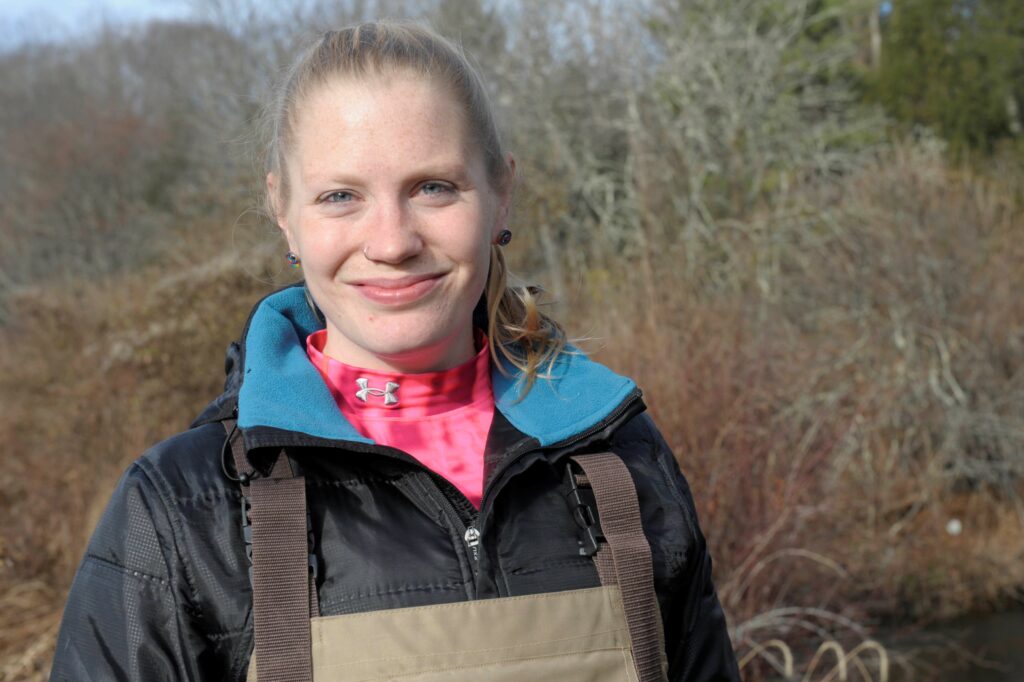
In a recent Expand Your Career Options panel, two doctoral alumni working in the nonprofit sector were invited to share their tips and insights about career preparation for a career in nonprofit organizations.
The alumni panelists were:

Dr. Jessie Rack
Program Director, Natural History Institute
‘16 Ph.D. Ecology & Evolutionary Biology, UConn
Dr. Justin Mahalak
Data and Quality Analyst, National Service Office for Nurse Family Partnership and Child First
’18 Ph.D. Social Psychology, UConn

Why choose to work in a nonprofit?
Dr. Rack already knew she did not want to follow a path to academia when she was a graduate student, and she invested her time to learn about different career options. Nonprofits provided her with the opportunity for science writing and communication, and public outreach, which met her needs and integrated her interests.
For Dr. Mahalak, the path to nonprofits was less directional at first. He started working to fund his research and dissertation and later landed on his position at Child First, where he could utilize his skills like problem-solving and data analysis that he developed in graduate school. “This job gives me the motivation to work and that’s the reason I choose to stay in the field,” said Mahalak.
What is day-to-day life like?
Mahalak’s organization follows a 9 a.m. to 5 p.m. schedule and had provided the option for remote work before the pandemic. It has a strong “family comes first” value thanks to its focus on family and children.
In Rack’s current role, there is a variety of work tasks that are diverse from day to day. She also has the choice to structure her time. “However, it really depends on the sector you are in,” she said, “and it differs from different organizations.”
“You’d better start out being humble despite your degree.”
Dr. Jessie Rack
What are the opportunities for career progression?
From Rack’s experience, one might first start in an entry-level role and work their way up, or they could also move to other organizations and leverage the experiences they gain to enter a higher-level role. “You’d better start out being humble despite your degree,” she suggested, “With the credibility of having a Ph.D., you will need to learn how to apply your skills to a different setting while also learning new skills.”
“Look for opportunities to show what you can do and the value you can add to projects and conversations. Organizations have problems to be solved, and as a doctoral-level professional, you know how to come up with a solution.” Mahalak added.
What are some of the most enjoyable aspects?
Both panelists appreciate the flexibility, stability, and regular hours provided by their work organizations, and what’s important is the opportunity to make a difference in their work and the lives of individuals that their organizations serve.
They both enjoy the cultures of their organizations. “I feel respected and valued as a contributor to the success of the organization,” Mahalak said. “I love being at a place that integrates all that I was trying to do as an interdisciplinary researcher. Every day is different,” said Rack.
How could an early doctoral student prepare for a career beyond academia?
Mahalak suggested being willing to try things that others are not doing, and Rack emphasized that one should learn to translate their skills and show their future employers by sharing examples, the range of abilities they have such as communication, public speaking, grant writing, and analytical skills, etc.
The panelists also recognized in their roles, that they needed to use different transferable skills cultivated in grad school, for example, abilities to deal with intense situations and advocating for ideas.
“Don’t sell yourself short. You are highly skilled.”
Dr. Justin Mahalak
Where to look for job postings on nonprofit organizations?
Recommended by both panelists, getting on the email list of the organizations of interest is one of the key things to do. Also, professional organizations and societies often have their own job boards. Other recommendations include:
- Idealist.org – identifies organizations and allows searches for internships and jobs by “issues”.
- Guidestart.org – provides a searchable directory of nonprofit organizations by locations and fields.
The last one piece of advice
Rack encouraged graduate students to start looking for things that interest them, talking with different people, learning about future opportunities, volunteering if they have the time, and showing up to events and meetings.
“Also, don’t sell yourself short. You are highly skilled,” Mahalak said.
Career resources recommended by Dr. Jessie Rack:
- Book: Real-Resumes for Jobs in Nonprofit Organizations
- Book: An Introvert’s Guide to Networking: Practical Tools to Leverage Your Strengths and Expand Your Network
Expand Your Career Options occurs every semester with a different career field theme.
